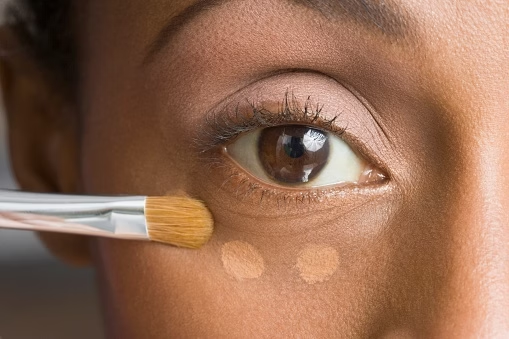Wearing makeup daily can boost your confidence and enhance your natural features—but it shouldn’t come at the expense of your skin. With the right habits and skincare support, you can enjoy a daily makeup routine without worrying about clogged pores, breakouts, or irritation.
In this article, we’ll cover how to maintain healthy skin while wearing makeup regularly, with tips on prep, product choice, hygiene, and post-makeup care.
Why Makeup Can Cause Skin Problems
Makeup itself isn’t harmful—but the way you apply, wear, and remove it can lead to:
- Clogged pores and breakouts
- Dryness or excessive oiliness
- Irritation and redness
- Premature aging if skin isn’t properly cared for
The good news? These effects are totally avoidable with good skincare and mindful routines.
Step 1: Always Start with Clean, Moisturized Skin
Makeup adheres better and looks more natural on clean, hydrated skin.
Before applying makeup:
- Wash your face with a gentle cleanser
- Apply a lightweight moisturizer
- Wait 2–5 minutes before applying makeup to allow absorption
Bonus tip: A hydrated base helps prevent flakiness and cakey foundation.
Step 2: Use Primer to Protect Your Skin
A primer acts as a barrier between your skin and makeup, helping to:
- Smooth texture
- Minimize pores
- Control shine or dryness
- Make your makeup last longer
Choose a primer that matches your skin type:
- Hydrating primer for dry skin
- Mattifying primer for oily skin
- Color-correcting primer for redness or dullness
Step 3: Choose Non-Comedogenic Products
“Non-comedogenic” means the product won’t clog pores—a must for daily makeup wearers.
What to look for:
- Foundations and powders labeled “oil-free” or “non-comedogenic”
- Lightweight, breathable formulas
- Mineral makeup options if you have sensitive skin
Avoid heavy cream foundations or products with alcohol and artificial fragrance.
Step 4: Don’t Skip Sunscreen
If your makeup doesn’t contain SPF—or if the SPF is under 30—you’ll need a separate layer of sun protection.
How to apply sunscreen with makeup:
- Use sunscreen after moisturizer, before primer
- Let it set before applying foundation
- For reapplication during the day, use a setting spray with SPF or a powder sunscreen
Step 5: Clean Makeup Tools Regularly
Dirty brushes and sponges collect oil, bacteria, and old makeup—leading to breakouts and irritation.
Best practices:
- Wash brushes weekly with gentle shampoo or brush cleaner
- Replace sponges every 1–2 months
- Store tools in a clean, dry space
Step 6: Avoid Sleeping in Makeup (No Exceptions!)
No matter how tired you are, always remove your makeup before bed. Sleeping in makeup can:
- Clog pores
- Dry out or irritate the skin
- Interfere with your skin’s overnight repair cycle
Use micellar water, a cleansing balm, or double cleanse for best results.
Step 7: Give Your Skin Breaks When Possible
While it’s safe to wear makeup daily with proper care, makeup-free days allow your skin to breathe and rebalance naturally.
Try:
- Wearing just tinted moisturizer or sunscreen on weekends
- Letting skin rest overnight with hydrating masks or serums
Extra Tips for Makeup-Wearing Skin Health
- Exfoliate 1–2 times a week to remove buildup
- Use clay masks weekly to prevent congestion
- Apply an antioxidant serum (like Vitamin C) in the morning to protect from pollution
- Hydrate well—inside and out
Sample Daily Routine for Makeup Users
| Step | Product Type |
|---|---|
| Cleanse | Gentle facial cleanser |
| Moisturize | Lightweight, hydrating moisturizer |
| Sunscreen | SPF 30 or higher |
| Primer | Based on skin type |
| Makeup Application | Non-comedogenic foundation, powder, etc. |
| End of Day | Makeup remover + cleanser + moisturizer |
Final Thought: Beauty and Skin Health Can Coexist
You don’t have to choose between wearing makeup and having healthy skin. With a consistent skincare routine, proper makeup hygiene, and product awareness, you can enjoy both.
Respect your skin, support it with good habits, and let your makeup be a form of expression—not a source of stress.
